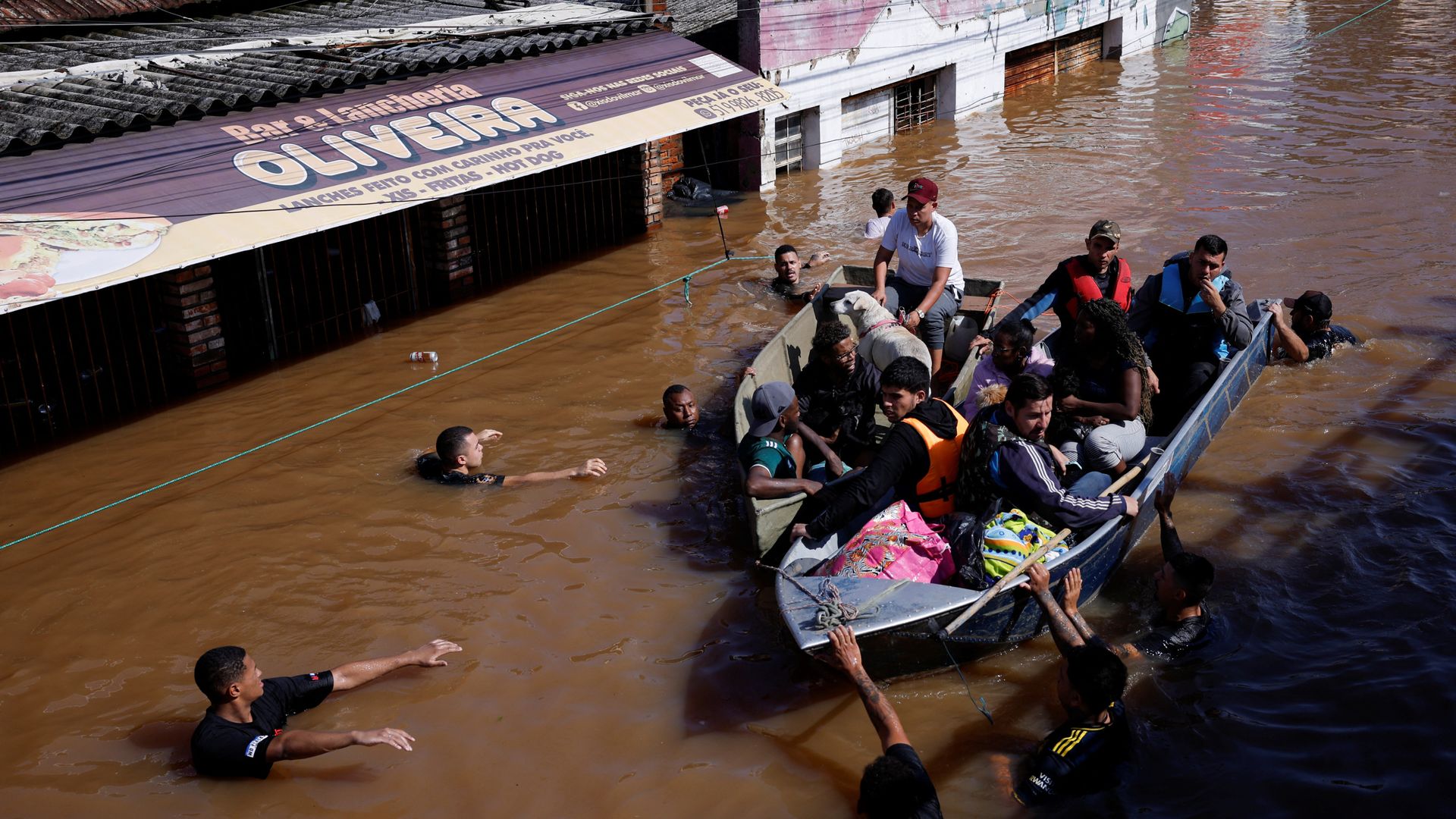Mass flooding in Brazil has killed 75 people with more than 100 people still missing, local authorities said on Sunday.
More than 80,000 people have been forced to flee their homes since downpours began across Rio Grande do Sul in the south of the country on Monday.
Some 15,000 people have sought refuge in schools, gyms, and other temporary shelters and 800,000 are believed to be without water.
The flooding has caused landslides, collapsed bridges, and seen roads transformed into rivers throughout the state.
On Saturday in the town of Canoas, people were seen standing up to their shoulders in muddy water waiting to be pulled to safety.
In some parts of the state, 11.8 inches (30cm) of rain has fallen in less than a week.
And in certain cities, water levels are at their highest in 150 years, according to the Brazilian Geological Service.
Madonna plays biggest-ever show to 1.6 million fans on Rio’s Copacabana beach
Dozens dead and roads turned into rivers as Brazil hit by record-breaking floods
Brazil floods: 29 people killed and thousands more displaced
The authority said this was the worst flooding to hit the state in more than 80 years, surpassing those in 1941.
State governor Eduardo Leite said on Sunday: “I repeat and insist: the devastation to which we are being subjected is unprecedented.”
He warned earlier in the week that a “kind of ‘Marshall Plan'” will be needed to rebuild affected areas.
President Luiz Inacio Lula da Silva has travelled to Rio Grande do Sul to discuss rescue efforts with the governor.
Read more
Roads turned into rivers in Brazil
‘Most critical flooding in history’
Pope Francis mentioned the devastation during mass at the Vatican on Sunday.
“May the Lord welcome the dead and comfort their families and those who had to abandon their homes,” he said.
The state is at a geographical meeting point between tropical and polar atmospheres, which has created periods of intense rains and others of drought.
Scientists believe the pattern has been intensifying due to climate change.
Heavy rains hit the state last September, as an extratropical cyclone caused floods that killed more than 50 people. That came after more than two years of a persistent drought due to the La Nina phenomenon.






















